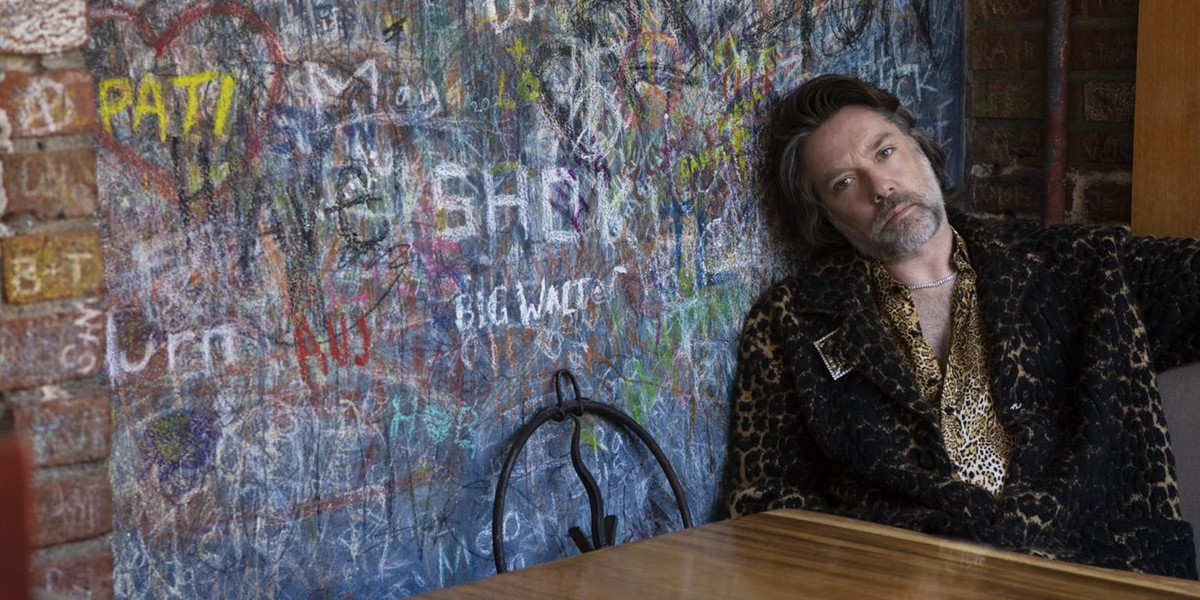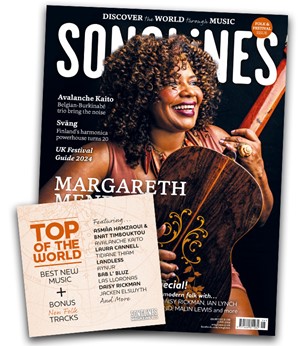Thursday, July 6, 2023
Q&A: Rufus Wainwright
Rufus Wainwright answers our questions about his latest album Folkocracy and what it was like growing up amid folk royalty

© Penn Turin
Rufus Wainwright's latest album, Folkocracy, plays with a name often used to describe his family. His mother Kate McGarrigle, aunt Anna McGarrigle and father Loudon Wainwright III, were all part of a lively folk scene from the 1970s onwards, and their children: Rufus, his sister Martha Wainwright and his half-sister Lucy Wainwright Roche, have maintained the family traditions.
His new album plays off this legacy, and his very particular upbringing, with Rufus and many collaborators singing well-known folk songs. Rufus being Rufus, it also doesn't play by the rules, with surprising collaborators including John Legend, Chaka Khan, Sheryl Crow and Nicole Scherzinger, alongside family members.
We spoke to Rufus about Folkocracy and what it was like growing up amid folk royalty.
Many of the guests and collaborations you’ve chosen on this record are unexpected – Chaka Khan singing 'Cotton-Eye Joe' for instance! – what was the process of choosing songs/collaborators?
We had ideas going in. We thought of songs that would both suit their voices, but also be something that the listener was not necessarily accustomed to. John Legend singing a Peggy Seeger song is a perfect example.
This is a very personal record and feels like a sketch of your own experience of folk – a combination of bona fide folk songs and others which are more on the outskirts – as well as your experience of musical community. Can you comment on the personal and communal nature of this album?
I would like to bring back a folk sensibility to the world; finding joy in hanging out with people in real time and in person. Playing instruments and harmonizing and enjoying the present. That for me is the main philosophy of the record.
You obviously grew up surrounded by folk. How has the musical landscape you’re immersed in changed since your childhood? What elements have been lost and what has been gained?
Oh, a lot has changed. When I grew up they had music in schools, and kids played instruments more. There was this concept of getting together and having a garage band. It feels now as though it's more sectioned off. Every kid is in their own lane, which is not great.
Do you have a personal favourite track or story linked to this album?
My favourite story was doing the Hawaiian song [‘Kaulana Nā Pua’]. I really had to study hard to sing that song and pronounce the language appropriately. Initially, I was going to listen to the original album and sort of wing it, but then my husband was a bit horrified and told me not to piss off the Native Hawaiians. I then got a coach and worked really hard on it. I consider it a great accomplishment.
What is the significance of this album for you within the wider context of your work?
I'm turning 50 this year. Though this was never the intention in terms of making a folk record, I do feel that oddly enough there is a cosmic situation occurring where this album represents the beginning – I'm now hopefully at the middle – and we're about to embark on the second half.
Folkocracy is out now on BMG

